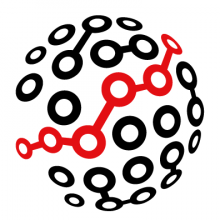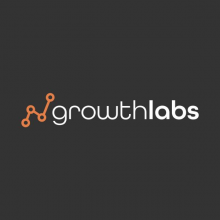
There are 3 Companies in Bristol
that provide Data Analysis Services!
Bristol is one of the most successful cities for tech startups in the UK. As a matter of fact, the city’s tech industry has a long history, and starting with 2020, the sector is booming. Things got so serious that even the area was name Silicon Gorge. ristol is one of the most successful cities for tech startups in the UK. As a matter of fact, the city’s tech industry has a long history, and starting with 2020, the sector is booming. Things got so serious that even the area was name Silicon Gorge.
Discover Top IT Companies in Bristol specialized in Data Analysis and other related services. Find the best IT service providers for your projects.
Data analysis services help businesses make sense of their data. They collect, clean, and analyze data to uncover valuable insights, patterns, and trends that can inform decision-making and strategy.
More than 644 verified and trusted IT companies specialize in providing data analysis services. These companies offer a range of expertise, from data scientists to data engineers. Notable IT companies in this field include IBM, Deloitte, and Accenture.
Handpicked companies • No obligation to hire • 100% risk-free
Explore Top Data Analysis Companies in Bristol
We are a digital-first analytics agency specialising in Google Analytics and Google Tag Manager consulting, implementation, and training.
B2B Digital Marketing Agency, driving lead generation and success for ambitious businesses across the UK.
From tackling your martech painpoints to delivering global brand strategies, we are the B2B marketing specialists for your commercial challenges.
Filter Data Analysis Companies in Cities near Bristol
Dive deeper and find the company you need close to you or, from a specific city you prefer. Some of the best companies come from smaller places
Find more Data Analysis companies around the world
TechBehemoths is the world's most advanced and user-friendly platform to match IT Companies with real clients without hustle.
IT Industry In Bristol: Pros & Cons
Bristol is one of the most successful cities for tech startups in the UK. As a matter of fact, the city’s tech industry has a long history, and starting with 2020, the sector is booming. Things got so serious that even the area was name Silicon Gorge.
Another surprising fact is that Bristol was called the UK’s Leading Smart City back in 2017, a nomination that one wouldn’t expect from this city. The top was made out of 20 cities around the UK and surprisingly none of the other cities managed to reach the progress Bristol did.
Also, an interesting fact is that in 2018, Bristol hosted more than 35K digital jobs, and successfully launched 225 startups, according to the Technation report. The growth of the city as a hub for new tech would seem to be a continuation of this long tradition of engineering excellence and innovation.
Today’s success of Bristol in the tech & IT industry was only partially due to the long history of the industry in the area. Another huge contributor to the entire digital ecosystem is companies that promote and highlight the city’s digital behavior and leading innovations. The mutual support - from companies to the city and vice versa launched many incubators, partnerships, accelerators, and competitions that most of the time work for citizens.
Projects such as The Engine Shield, SETsqared Partnership, Silicon Gorge Pitching Competition, and Oracle Startup Cloud Accelerator marked the city’s digitalization and highly contributed to the economical and financial development of Bristol, but as well as of the entire area.
In addition, Bristol is the home of several tech giants that also invest and create most of the digital workspaces for the community. Companies such as Nokia, BT, Amazon, Vodafone, or Sony consolidate the IT sector in Bristol and support the tech and IT development as well as launching startup programs, incubators, accelerators, and partnerships as such that were named above.
The Southwestern UK region in IT is dominated by two tech hubs: Bristol and Cardiff. And respectively the only city to compare Bristol is Cardiff. While Bristol is considered one of the leading tech hubs in the UK, Cardiff also benefits from high popularity in the same industry.
Many companies are struggling to choose their next location or the second office in one of these two cities while planning to expand in the region. This happens because the IT infrastructure is pretty much similar, and big tech companies have offices in both locations.
Yet, Bristol is considered to lead in specific fields of IT, such as cybersecurity, business development for digital startups, and programming. At the other end of the table, Cardiff is more known for web and graphic design, content marketing, and digital marketing overall. In this way, we can categorize Bristol as a more technical city, and Cardiff as a creative center, even though there is no serious difference between these two.
In terms of salary competitivity, Bristol surpasses Cardiff. We took as an example the job of a Java developer and compared numbers. The average for Bristol is £57K/yr while in Cardiff is £42K/yr according to glassdoor. Even though the difference is obvious, please keep in mind what was mentioned in the city profile, while one is more technical, the other is more creative.
All in all, Bristol’s tech industry continues to develop and is expected to grow despite the pandemics in 2020-2021. Yet, the IT boom comes in entire Europe, not only in Bristol, so the leading position that the city has now can only be controlled by the community, the city’s effort, and large investors.
What is Data Analysis and what are its benefits for your projects?
Data analysis services help businesses make sense of their data. They collect, clean, and analyze data to uncover valuable insights, patterns, and trends that can inform decision-making and strategy.
More than 644 verified and trusted IT companies specialize in providing data analysis services. These companies offer a range of expertise, from data scientists to data engineers. Notable IT companies in this field include IBM, Deloitte, and Accenture.
Data analysis service providers use various tools and technologies to work with data effectively. Commonly used tools include statistical software like R and Python, data visualization tools like Tableau and Power BI, and big data platforms such as Hadoop and Spark. Cloud computing platforms like AWS and Azure are also popular for data storage and analysis.
Data analysis services are often part of a broader range of data-related services, including:
-
Data Visualization: Creating graphical representations of data for better understanding.
-
Business Intelligence: Developing dashboards and reporting systems for data-driven decision-making.
-
Predictive Analytics: Forecasting future trends and outcomes based on historical data.
-
Data Engineering: Building data pipelines and infrastructure for data storage and retrieval.
-
Machine Learning and AI: Leveraging advanced algorithms to automate data analysis and predictions.
Selecting the right IT company for data analysis services involves considering factors like the company's experience, domain expertise, client references, and the range of services they offer. Look for a company that aligns with your specific data analysis needs, whether it's for business intelligence, marketing, finance, or any other domain.
Data analysis service providers are essential for various projects, including:
-
Market Research: Analyzing customer behavior and market trends.
-
Financial Analysis: Assessing investment opportunities and managing risks.
-
Healthcare Analytics: Extracting insights from patient data for better healthcare outcomes.
-
Supply Chain Optimization: Improving logistics and inventory management.
-
Customer Insights: Understanding customer preferences and enhancing user experiences.
-
Fraud Detection: Identifying unusual patterns in financial transactions.
Most of the times, these services are valuable for companies across industries, including but not limited only to:
-
Retail: Analyzing sales data to optimize inventory and promotions.
-
Finance: Managing investments, risk assessment, and fraud detection.
-
Healthcare: Improving patient care, disease prediction, and drug discovery.
-
Marketing: Enhancing customer targeting and campaign effectiveness.
-
Manufacturing: Optimizing production processes and quality control.
-
Technology: Utilizing data for product development and user experience enhancement.
Data analysis services can provide valuable insights, but it's crucial to have clear objectives and questions you want to answer with the data. Communicate your goals clearly with the service provider to ensure that the analysis aligns with your needs. Data privacy and security should also be a top consideration when sharing sensitive data with a service provider.


